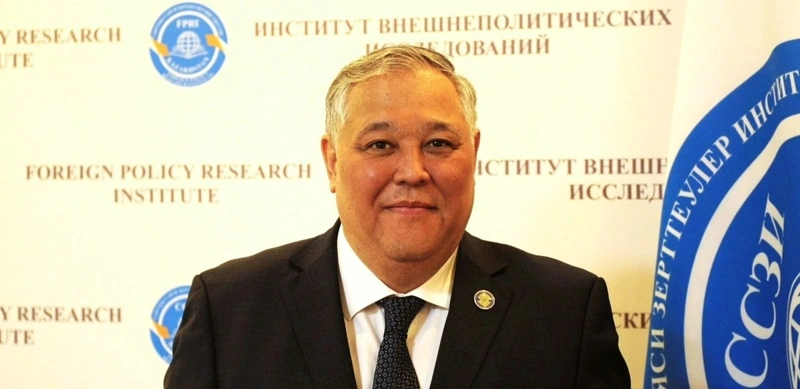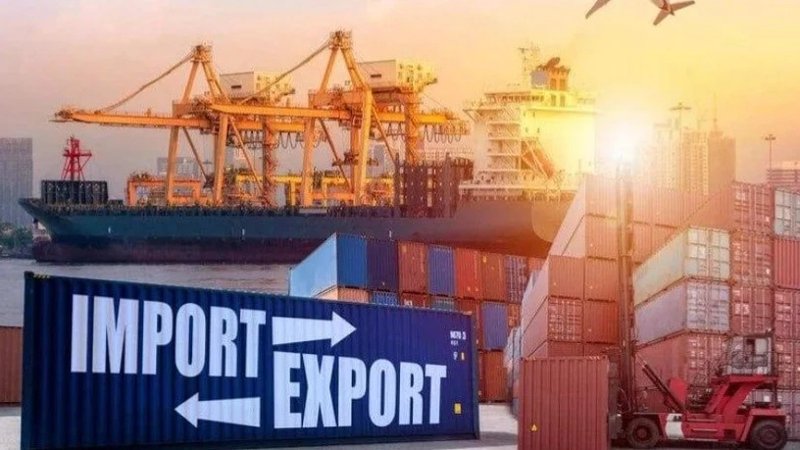Astana and Yerevan shift to joint sector projects, expert says
Deputy Chair of the Board of the Institute for Foreign Policy Studies under the Foreign Ministry of Kazakhstan Manarbek Kabaziev outlined the main outcomes of Prime Minister Nikol Pashinyan’s visit to Kazakhstan, Qazinform News Agency correspondent reports.

According to him, the talks showed that relations between the two countries are moving into a phase of practical and long-term cooperation. The focus is now on real economic and transport projects that matter for the entire region.
“First, both sides aim to boost trade and expand industrial cooperation. Kazakhstan has strong export potential in metallurgy, petrochemicals, food production, and machinery, and Armenia is ready to serve as a stable market for these goods. At the same time, Armenian companies are entering the Kazakh market in services, IT, and retail, and the two governments are creating conditions for further growth,” Kabaziev said.
Second, he noted the importance of the transport and logistics agenda. For the first time in many years, transit shipments of Kazakh goods to Armenia through the South Caucasus have been restored. This effectively opens a new trade route that can serve as another channel to markets in the Middle East and Europe.
“For Kazakhstan, this is an important step toward strengthening its role as a transit hub in Eurasia and diversifying its routes. A third priority is digital technology and innovation. The two countries agreed to expand cooperation in IT, artificial intelligence, and training. The launch of the TUMO education center in Astana is a symbolic milestone that will help both countries combine expertise and work together in promising sectors of the future,” the analyst added.
Finally, the visit also strengthened the humanitarian side of relations. Cultural, educational, and medical programs are expanding. This, Kabaziev noted, builds trust between the two societies and creates a solid social base for deeper economic cooperation.

Overall, he considers the results of the visit successful and strategically important. It created a foundation for new joint projects, reinforced mutual confidence, and confirmed that Kazakhstan and Armenia are ready to develop cooperation on a long term, pragmatic, and mutually beneficial basis.
“An important factor is the stronger institutional base for cooperation. Regular meetings of the intergovernmental commission are taking place, business forums and direct commercial contacts are being launched, and issues related to digital development, transport, industry, and farm trade are actively discussed. The Joint Statement and several bilateral documents move the relationship to a stable level of strategic partnership supported by real economic results and mutual political backing,” the speaker said.
Kabaziev also cited concrete figures. The potential for growth in supplies in the metallurgy sector is estimated at nearly 100 million dollars and more than 18 million dollars in the machinery sector.
The Armenian market needs raw materials and equipment for its industrial sector, and Kazakhstan can ensure steady volumes. The combined export potential in chemicals and petrochemicals is valued at more than $110 million. Deliveries of wheat, flour, oils, dairy products, and confectionery, along with joint projects in farm processing, can position Kazakhstan as a key food supplier for Armenia and help strengthen the partner country’s food security, Kabaziev said.
The analyst also outlined the outlook for the interagency documents that were signed. The launch of TUMO Astana opens a new field of advanced technology cooperation, where Kazakhstan and Armenia can create joint platforms through Astana Hub, the AIFC, and other networks.
“Thus the economic partnership is moving beyond the traditional export of raw materials and shifting toward the creation of a shared ecosystem of sector based projects,” the expert said.
As for projects that could increase trade between the two countries within the EAEU, he sees the greatest potential in agreements that create added value and build unified production and transport chains. These include joint processing of farm products, development of multinational transport routes, cooperation in digital and fintech sectors, and joint work in nuclear and scientific fields, including exchanges on nuclear plant safety, educational programs, and shared research projects.
“Such initiatives strengthen the competitive position of both Kazakhstan and Armenia within the EAEU and expand their ability to grow regional trade and enter global markets,” he concluded.
Earlier, Qazinform News Agency reported that Kazakhstan was ready to offer Armenia goods worth $350 million, as President Kassym-Jomart Tokayev said during a press conference after talks with Armenian Prime Minister Nikol Pashinyan in Astana.
